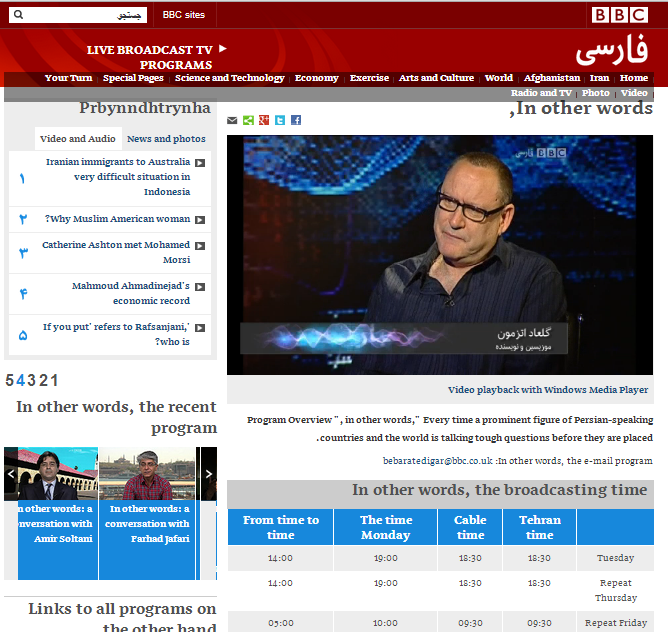h/t BB
As was documented here at the time, on July 23rd BBC Radio 4 chose to air a repeat broadcast of a show by comedian-cum-political-activist Jeremy Hardy (originally aired in September 2014) which promoted crude stereotypes and factual inaccuracies.
A member of the public who complained to the BBC received a response which includes the following interesting statement:
“The BBC would never include what it considered to be anti-Semitic material in its comedy programmes; here the production team and Radio 4 took great care in reviewing the programme’s content to ensure this, especially in the satire concerning actions of Israeli governments past and present. No offence was intended by the jokes and satirical observations in the programme.”
The key words in that sentence are obviously “what it considered to be”. As we learned from the BBC Editorial Complaints Unit’s response to complaints about remarks made by Tim Willcox during a broadcast from Paris in January 2015, the BBC does not use the EUMC Working Definition of Antisemitism and as was observed at the time:
“It is worth noting at this point that Steel’s rejection of the classification of Willcox’s statement as antisemitic is based on the following claim inserted as a footnote:
“In fact the phrase isn’t part of the EUMC definition, but is one of a number of examples provided of what might be considered anti-Semitic under the definition, subject to “taking into account the overall context”. The EUMC definition was withdrawn in 2009 by its successor organisation, the European Union Agency for Fundamental Rights, which has published no definition of its own.”
This of course is not the first time that the BBC has exploited the fact that the European Agency for Fundamental Rights has not put out its own definition of antisemitism because its mandate does not include such activities. Whilst the EUMC Working Definition of Antisemitism was indeed removed from the FRA’s website along with other EUMC documents in 2013, it has not been “withdrawn”.”
So, whilst we do know that the BBC does not work according to the EUMC Working Definition of Antisemitism, we do not know which definition it does use and hence the BBC’s funding public has no way of determining what the corporation does in fact consider “to be anti-Semitic material”.
That of course makes it very difficult for any member of the public wishing to submit a complaint concerning antisemitism in BBC content to know whether it is worth his or her time and effort to do so because the ‘goal posts’ are unclear. It also means that public funding is likely to be wasted on handling complaints which, were the general public privy to the BBC’s definition of antisemitism, may not have been submitted in the first place.
At the Global Forum for Combating Antisemitism held in Jerusalem in May, one of the many issues identified was the need for media organisations to adopt standard accepted definitions of antisemitism such as the EUMC Working Definition or the US State Department definition.
Until the day the BBC recognizes the imperative of working according to internationally accepted definitions, in the interests of transparency and accountability it must at least publish its own definition of antisemitism and inform its funding public with which experts (if any) it consulted in order to arrive at a definition it obviously considers to be superior to and more authoritative than the existing ones.



